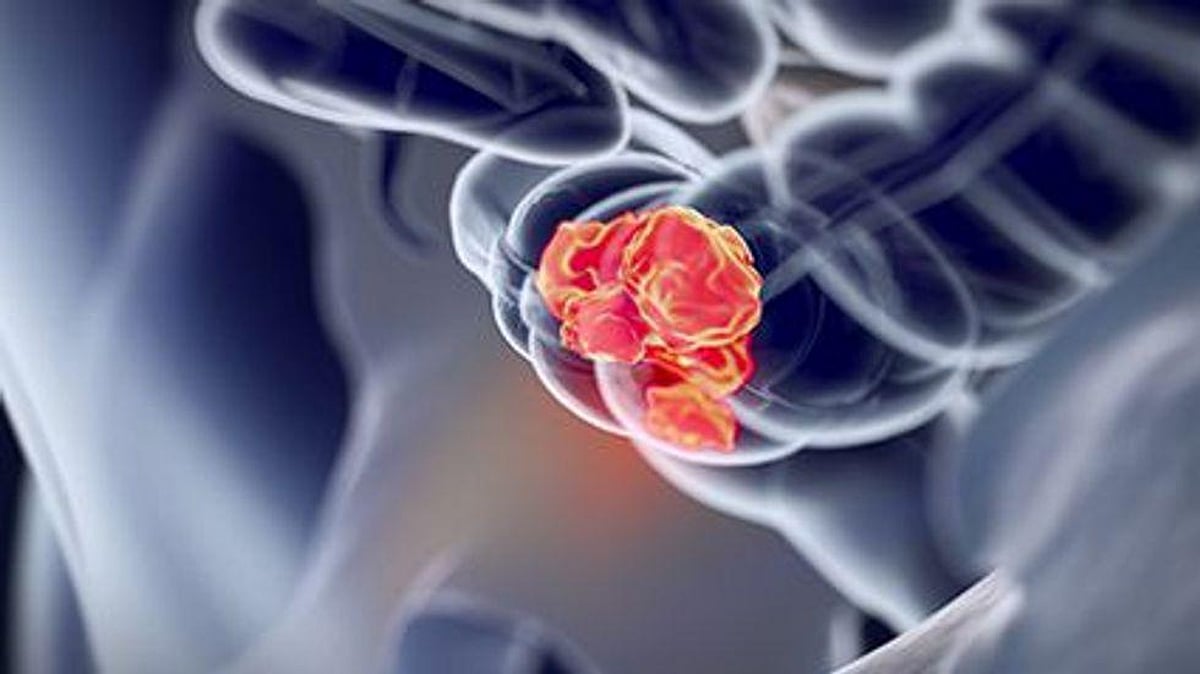Young Have Greatest Burden of Distant Colorectal Adenocarcinoma

THURSDAY, Jan. 27, 2022 (HealthDay News) -- The youngest adults have the greatest burden of distant-stage early-onset colorectal adenocarcinoma, according to a study published online Jan. 26 in Cancer Epidemiology, Biomarkers & Prevention.
Eric M. Montminy, M.D., from the Tulane University School of Medicine in New Orleans, and colleagues stratified adenocarcinoma incidence rates (IRs) by stage, age, subsite, and race in 103,975 patients. The three-year average annual IR changes (pooled 2000 to 2002 compared with 2014 to 2016) were calculated.
The researchers found that the steepest percent increases were in distant-stage cancers. The greatest increase in colon-only, distant-stage adenocarcinoma was seen in 30- to 39-year-olds (0.75 to 1.12/100,000). The steepest increase in rectal-only, distant-stage adenocarcinoma was in 20- to 29-year-olds (0.06 to 0.14/100,000), followed by 30- to 39-year-olds (0.39 to 0.77/100,000) and 40- to 49-year-olds (1.38 to 2.04/100,000). The proportions of distant-stage adenocarcinoma increased for colon-only and rectal-only subsites in young patients; the largest increases were seen in 20- to 29-year-olds and 30- to 39-year-olds for rectal-only (18 to 31 percent and 20 to 29 percent, respectively). The largest increases in distant-stage proportion for rectal-only were seen for 20- to 29-year-old non-Hispanic Blacks and Hispanics (0 to 46 percent and 28 to 41 percent, respectively); the greatest increase in distant colon proportion was seen in 20- to 29-year-old non-Hispanic Blacks (20 to 34 percent).
"We need to place additional focus on racial subgroups that have an increased tendency to present with distant-stage disease, including the youngest non-Hispanic Black and Hispanic populations, to reverse these trends," a coauthor said in a statement.
One author disclosed serving as a consultant for Exact Sciences Corporation and Myriad Genetics.
Abstract/Full Text (subscription or payment may be required)
Related Posts
Los adultos con TDAH pueden sufrir enfermedades cardiacas
MARTES, 20 de septiembre de 2022 (HealthDay News) -- Una nueva investigación...
Omega-3, -6 Fatty Acids No Aid for Vision Among Extremely Preterm Infants
THURSDAY, Aug. 31, 2023 (HealthDay News) -- Postnatal supplementation with...
Un ‘hidrogel’ inyectado quizá sea una nueva opción contra el dolor de espalda
JUEVES, 9 de junio de 2022 (HealthDay News) -- Como arreglar una ponchadura en...
El racismo durante la juventud deja a las mujeres negras con un riesgo duradero de depresión
LUNES, 28 de febrero de 2022 (HealthDay News) -- Las mujeres negras que...
